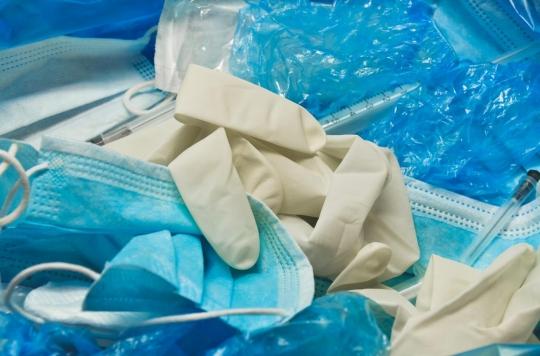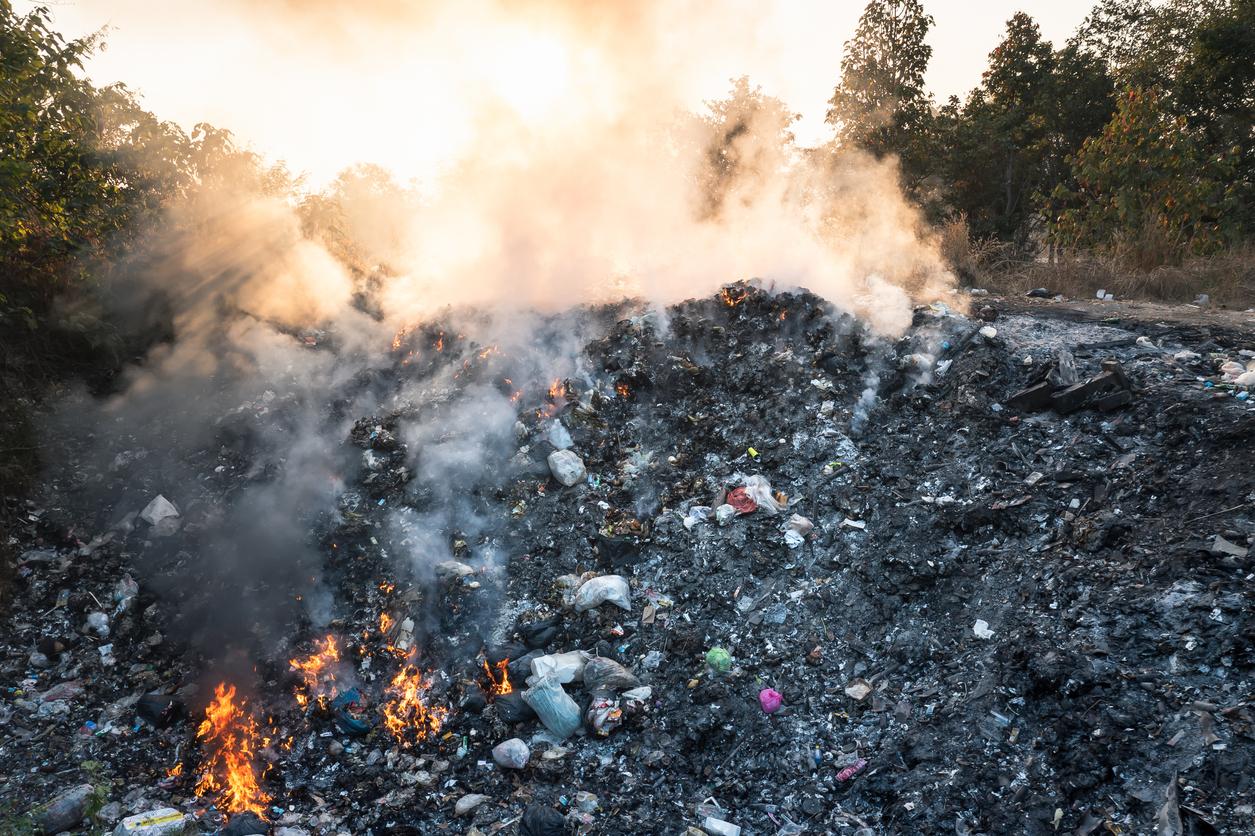The production of disposable plastic objects to protect against the coronavirus has exploded in recent months. Ultimately, the ecological consequences of this health crisis could be disastrous.

The coronavirus epidemic which has paralyzed the planet for months is a symbol of excessive globalization and, for many experts, also that of a dramatic ecological crisis. But, ironically, the health crisis we are going through risks putting ecology even more at risk. If the whole world rejoiced at the drop in air pollution in major cities due to the shutdown of transport and many polluting factories, the production of disposable plastic objects to protect against the virus such as masks and disposable gloves has exploded in recent months. If this peak of plastic were to last only a few more weeks, the consequences on the oceans already encumbered with plastic waste could be spread over years, alert environmental organizations.
“We know plastic pollution is a global problem – it existed before the pandemic, but we’ve seen a lot of push from industry to roll back some of the great progress that has been made.”explained Nick Mallos, representative of the American NGO Ocean Conservancy, to CNN.
“Gloves, like plastic bags, can be mistaken for jellyfish or other types of sea turtle food. We know that some countries in the world do not have the necessary infrastructure to manage such a quantity of waste and this will have consequences on the environment and human health”deplored John Hocevar of the American branch of Greenpeace.
Single use as a precautionary measure
In France, the Stermied group, which specializes in sterile packaging for the medical world, saw a drastic increase in orders. “We are experiencing a 30-40% surge in customer inquiries compared to 2019 figures”rejoiced Thibaut Hyvernat, its president, with The New Factory. In China, in the province of Hubei, the quantity of medical waste reached 665 tons per day at the beginning of March against 180 before January 20, according to the Ministry of Ecology and the Environment.
This overconsumption of plastic since the start of the epidemic is not only related to medicine. “The closure of restaurants automatically leads to an increase in consumption towards packaged products sold in supermarketsexplains Emmanuel Guichard, general delegate of Elipso, the professional federation of the packaging plastic at AFP. We have about 30% more production. It’s really huge”he explains.
In early March, before the start of containment, Starbucks had even stopped using reusable cups in its cafes in the United States and Canada in the hope of preventing the spread of the coronavirus among its employees and customers. However, plastic is not the only problem, with the proliferation of internet orders in recent weeks, the production of cardboard and paper has also exploded.
Selective sorting in slow motion
A phenomenon that is all the more problematic in that in France, selective sorting is out of order. According to The JDD, between 42% and 45% of French sorting centers have closed their doors as well as 99% of recycling centers. Most cities store packaging waste while others mix it with other waste to landfill or incinerate. This is for example the case in Paris where sorting has been suspended in order to reduce the teams and the risk of contamination at the same time.
To guarantee the protection of employees in the sector, the Minister for Ecological Transition, Élisabeth Borne, has also asked individuals to throw away their used tissues, masks and gloves in a dedicated and well-closed plastic bag. The latter must be kept for 24 hours before being placed in the plastic bag for household waste and not the yellow bin, that of recyclable waste.
.















